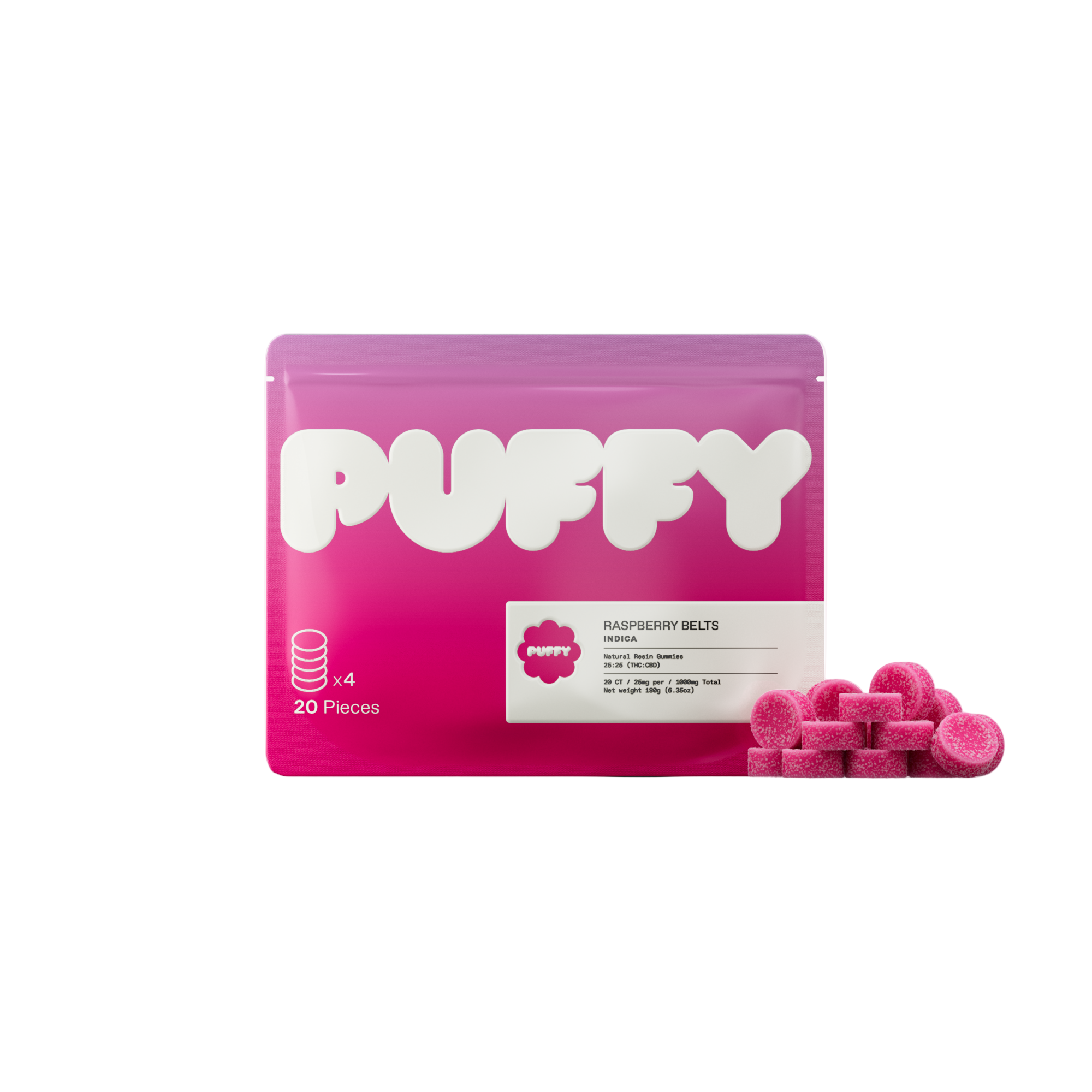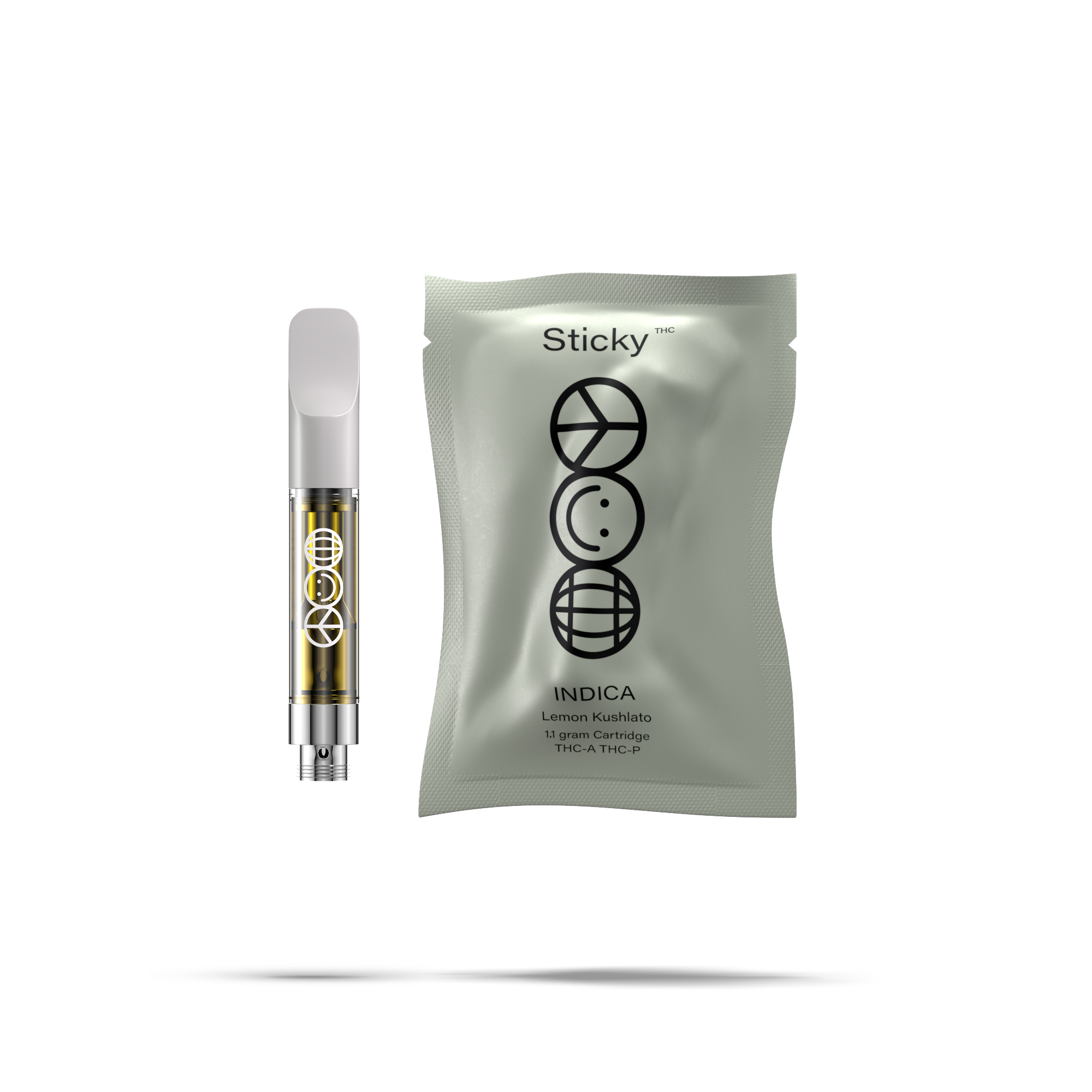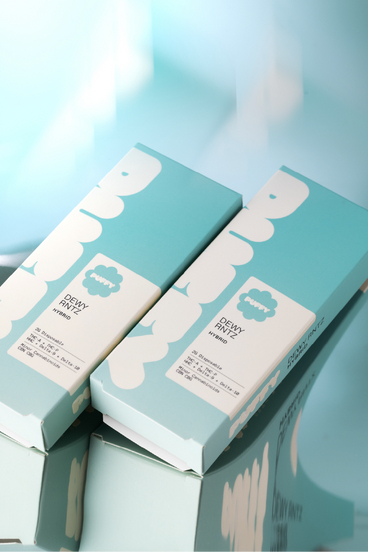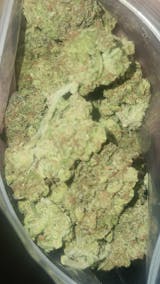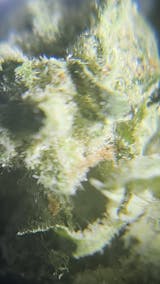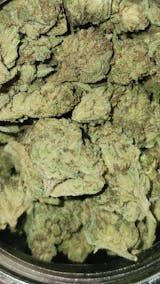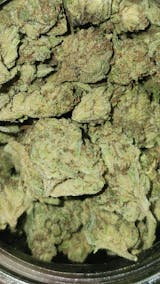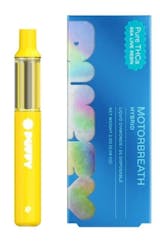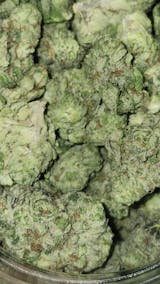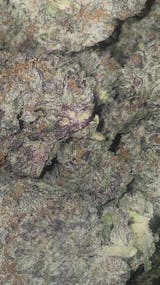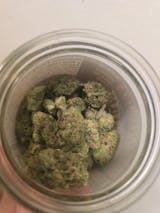Table of Contents
What is Delta 9?History of Delta 9How Delta 9 THC WorksForms of Delta 9Delta 9 THC vs THCUses of Delta 9How to Choose Delta 9 ProductsDelta 9 Benefits and Side EffectsDelta 9 DosageTaking Too Much Delta 9Delta 9 FAQKey Takeaways
What is Delta 9?
Delta 9 THC is the most popular and potent compound that occurs naturally in cannabis. It's also responsible for the plant's psychoactive properties and therapeutic effects. Delta 9 THC becomes slightly more complex when factoring in legality, uses, extraction methods, product types, and sources. However, it's important to remember that Delta 9 is Delta 9 regardless of the context.
Explore the history, effects, benefits, laws, and consumption methods in our comprehensive guide to Delta 9 THC.
History of Delta 9 THC
Delta 9 THC's history dates back centuries alongside hemp and cannabis plants. As early as 2800 BC, the ancient Chinese emperor Shen Nung listed cannabis in its pharmacopeia as herbal medicine. Along with the Chinese, the Assyrians, Greeks, Romans, and Indian Hindus mentioned cannabis as a therapeutic tool for arthritis, depression, inflammation, and lack of appetite.
Around 500 BC, some evidence suggests the Chinese began smoking marijuana to get high during spiritual rituals. However, they didn't immediately pass the tradition on to other cultures. When the central Asian people later introduced hemp to Africa, Europe, and the Americas, all cultures utilized hemp primarily for fibrous stalks to make clothing, paper, and rope. They also cultivated cannabis seeds for nutrition. Since neither hemp seeds nor stalks contain THC, they were not experiencing Delta 9's psychoactive effects. Americans finally began smoking cannabis to get high around the early 1900s.
How Delta 9 THC Works
Delta 9 THC is a compound known as a cannabinoid similar to the brain's natural chemical anandamide. This atomic similarity means THC acts as a neurotransmitter, binding directly to receptors in the brain and nervous system that send messages related to pleasure, memory, thinking, concentration, movement, and perception. The neural communication network that Delta 9–and other cannabinoids–act on is known as the Endocannabinoid System.
Forms of Delta 9 THC
Traditionally, people smoke Delta 9 THC from cannabis plants via the good ole fashioned inhalation method. However, today cannabis lovers consume Delta 9 THC in a variety of forms, including:
- Hemp and cannabis flower
- Oils
- Concentrates
- Isolates
- Vapes
- Edibles
- Beverages
- Topicals
- Transdermal patches
- Suppositories
Delta 9 THC vs. THC
When most people say THC, they mean Delta 9, but technically, they're incorrect. So let's harken back to chemistry class for a moment.
THC stands for "tetrahydrocannabinol," which is the chemical responsible for marijuana's psychoactive effects and some of its therapeutic properties. While Delta 9 is the most prominent, naturally occurring tetrahydrocannabinol in the plant, it's not the only variation. Delta 9 is just one of several THC isomers which contain the same chemical formula except for a slight variation in atomic arrangement. Other THC isomers include Delta 8 and Delta 10, but the list goes on.
Uses of Delta 9 THC
What is delta 9 used for? That depends on the person. According to an American Academy of Family Physicians' survey, 46% of adults said they consumed Delta 9 THC marijuana for recreational purposes–in other words, to experience the psychoactive effects. In addition, 35% reported using Delta-9 THC specifically for medical reasons. Finally, 19% said they consumed cannabis for medical and pleasurable reasons.
How to Choose Delta 9 Products
First and foremost, choosing Delta 9 products hinges on the product's safety and quality. Whether hemp-derived or cannabis-derived, all Delta 9 products should be laboratory tested for potency and safety and provide proof through a published Certificate of Analysis (COA). COAs confirm Delta 9 THC's presence and concentration levels. It also quantifies other cannabinoids present and confirms the product is free from harmful contaminants.
Once the quality is confirmed, how to choose Delta 9 products depends on personal goals, desired effects, and preferred consumption routes, like smoking, vaping, or eating.
Smoking Delta 9
Smoking Delta 9 cannabis flower in a joint, blunt, or pipe is the most traditional consumption method. Smoking Delta 9 causes the user to inhale smoke. It also releases a distinct aroma that makes the method less than inconspicuous. That said, many people prefer this method because it allows them to consume all the plant's beneficial compounds, including cannabinoids, like CBD, terpenes, and flavonoids. Delta 9 flower is also milder than edibles and concentrates because it typically contains a lower overall concentration of the THC.
Vaping Delta 9
Vaping Delta 9, either through vaporizers, vape pens, or dab rigs, is an effective method to consume potent levels of the compound. Vaporizers can hold concentrates or flower, while vape pens are made for oils or distillates. Dab rigs are explicitly made for cannabis concentrate.
In all vaping cases, the effects of Delta 9 come on fast and strong. Some prefer this method due to the intensity. Additionally, many people consider vaping a healthier alternative to smoking because vapor doesn't release the harmful chemicals that burnt flower does. That said, vaping has been linked to lung issues, so it's essential to buy these products from a reputable source.
Delta 9 Edibles
Delta 9 edibles come in the form of beverages and food products. Due to the way the body processes these infused goodies, Delta 9 THC edibles can take anywhere from 30 minutes to several hours to kick in. Once they do, the psychoactive effects feel much stronger than smoking and deliver a more intense body high. The effects can last for several hours, making Delta 9 edibles suitable for people who have enough time to devote to the experience.
Delta 9 THC Topicals
Delta 9 THC topicals are effective therapeutic products that don't deliver psychoactive effects. Lotions, oils, salves, and transdermal patches work by releasing Delta 9 through the skin and into the bloodstream. Transdermal THC patches can help with all-day relief of symptoms related to pain and anxiety. On the other hand, Topical THC lotions and salves provide more temporary and targeted pain relief to the area where they're applied.
Benefits and Side Effects of THC
Delta 9 THC exhibits a range of mental, emotional, and physical benefits that make it the most commonly used illicit substance in the US. At the same time, some people report less-than-ideal side effects of THC, especially at high dosages, so it's essential to explore all potential aspects of the experience.
|
Benefits of Delta-9 THC Euphoria Mood elevator Anti-anxiety Somatic tingling Pain relief Nausea relief Better sleep Improved appetite Sex enhancement |
Potential Side Effects of THC Confusion Paranoia Anxiety Short-term memory loss Increased psychosis risk Dizziness Emotional dependence Tolerance Reduced REM sleep |
Interestingly, THC can be a benefit or detriment when it comes to anxiety. That's because Delta 9 THC is not a one-size-fits-all cannabinoid. Instead, Delta 9 affects everyone differently based on body chemistry, dosage, and comfort level. That's why it's essential to start at a low THC dosage and take the substance in a safe space before experimenting with more potent products.
1. Cognitive Effects of THC
Many people want to know what a Delta 9 THC high feels like. Ultimately, they can only find out through safe experimentation. However, typical marijuana users report many overlapping cognitive effects of THC that range from overwhelmingly positive to slightly unsettling. The outcome may depend on the product, the person's baseline mood, and how well their Endocannabinoid System functions.
Most people say THC produces cognitive effects related to relaxation, joy, heightened mental perceptions, openness, and mood elevation.
On the other end of the spectrum, too much THC can compromise cognitive function. For example, some people experience a lack of motor coordination, paranoia, inability to focus, short-term memory loss, and powerlessness over their emotions.
2. Physical Effects of THC
THC users report feeling sleepy, hungry, and tingly, also known as a "body high." Body buzzes are typically pleasurable and involve feeling head-to-toe sensations that boost relaxation, reduce muscle stiffness, and ease spasms. The physical sensations also help people shift focus from repetitive, negative thoughts to their present bodily experiences.
Conversely, THC's heightened physical effects may not suit everyone or produce the same positive results. For example:
- Some people utilize THC to fall asleep and love the sedative outcomes. Others feel excessively drowsy and dislike the effects.
- Some people take THC to combat social anxiety, while others take a hit and want to retreat into a dark corner and hide from the world.
- THC is FDA-approved to treat nausea and vomiting, yet some people say they feel uncomfortably queasy and dizzy.
- Many people take THC to improve their appetite and enjoy their favorite foods, while others dislike the ravenous hunger.
In short, most of THC's physical effects do not fit into an objective mold. But there are always exceptions. For example, Delta 9 can result in unpleasant physical effects such as faster heartbeat, memory loss, dry mouth, and lung irritation.
Normal Dosage of Delta 9 THC
Standard Delta 9 THC dosages vary significantly based on the cannabis form and product. Let's explore:
Joints containing dried cannabis
One standard joint filled with cannabis contains about 75 milligrams to one gram of flower. The average THC concentration falls around 12%, but strains commonly contain 20% THC or more of Delta 9. New cannabis users should start by taking one hit and waiting about 15 minutes to see how they feel before inhaling more.
Vapes containing THC concentrates
Vaping cannabis oil is very different from inhaling Delta 9 flower. A normal dosage of Delta 9 THC in flower rarely exceeds 25%, while vapes commonly contain 50-80% THC. This may be the perfect potency for experienced cannabis fans. At the same time, new cannabis users should start low and slow for the best outcome.
Edibles containing processed THC
Many people say it's impossible to compare a "normal dosage of Delta 9 THC" in a joint to an edible. That's because the body processes Delta 9 entirely differently in this form. For example, when someone smokes cannabis, THC travels from the lungs through the bloodstream rapidly. However, when someone eats marijuana, they digest the food, and the liver eventually metabolizes the THC into an entirely new compound called 11-hydroxy-THC. This process creates a much more intense and longer-lasting high. Typical edibles contain 5 to 10 mg THC. However, new users should consider splitting that in half or quarters.
What If You Take Too Much Delta 9?
Delta 9 THC impairment levels are different for everyone. And even the most experienced cannabis users can accidentally take too much. When that happens, it's important to remember that Delta 9 is not life-threatening, and there is no known "fatal dose."
So, people who take too much Delta 9 shouldn't freak out. Instead, they should remember there is no quick fix to feeling too high, and they'll need to ride out the experience until the body naturally eliminates the substance.
That said, here are a few tips to ease the discomfort if you took too much Delta 9:
- Hydrate with water or a citrusy drink to reduce dry mouth and draw the attention away from uncomfortable symptoms and onto something nourishing.
- Raid the cabinet for peppercorns, then proceed to sniff or chew. Anecdotally, people report peppercorn scents to help combat anxiety. This may be due to its terpene, beta-caryophyllene, which synergizes with the Endocannabinoid System to produce greater balance.
- Try breathwork. It turns out breathing exercises like box breathing or alternate nostril breathing help calm the nervous system, creating a sense of ease and relaxation. Focusing on the breath can also slow down the heart rate.
- Take CBD. As a THC modulator, CBD can help reduce the effects of taking too much Delta 9 by reducing anxious feelings.
Delta 9 FAQs
Delta 9 THC FAQs are common because THC is a complex molecule that delivers a range of effects and product considerations. Let's review some of the top Delta 9 FAQs:
Is Delta 9 Legal?
Hemp-derived Delta 9 THC is federally legal and permissible throughout the country. Adults over 18 can buy legal Delta 9 in hemp stores and online.
Cannabis-derived Delta 9 THC is federally illicit. However, 37 states have an established medical marijuana program, and 18 states legalized cannabis for recreational use. So adults in medical states can apply for cannabis cards based on qualifying conditions, and adults in recreational states can freely purchase Delta 9 THC at local dispensaries.
If you’re wondering whether Delta 9 is legal in your state, check out our Complete Guide on Delta 9 Legality.
Will Delta 9 THC Get You High?
Does Delta 9 get you high? Absolutely. Delta 9 is responsible for effects ranging from pure euphoria and heightened sensations to paranoia and debilitating anxiety.
Is Delta 9 Bad?
Delta 9 is not good or bad. It's a natural, plant-based compound that delivers a broad spectrum of effects. However, like all chemical compounds, Delta 9 affects everyone differently, so people should educate themselves on Delta 9 product types, experiment with dosages, and only buy from quality and safety brands.
Is Delta 9 weed, or is it the same as a weed?
Delta 9 is not weed. It is the most prevalent compound naturally occurring in weed plants, responsible for its psychoactive properties.
Is Delta 9 Addictive?
THC, like any drug (including caffeine), can be addictive. In other words, people can develop a physical tolerance to the compound and become psychologically dependent, despite potentially harmful outcomes. The National Center for Drug Abuse Statistics indicates that roughly 10% of regular cannabis users will develop a marijuana use disorder. Defined as "continued cannabis use despite having persistent or recurrent social or interpersonal problems caused or exacerbated by the effects of cannabis," cannabis use disorder can seriously impact one's quality of life.
In terms of physical dependence, THC is not associated with severe withdrawal symptoms. That said, frequent marijuana users who stop taking Delta 9 report issues like cravings, anxiety, sleep disruptions, crankiness, and reduced appetite.
Where does Delta 9 come from, and How Is Delta 9 Made?
Delta 9 THC comes primarily from cannabis plants. Brands can sell THC in its natural flower form or as an extract. To create consumable or topical THC, nearly all processors extract Delta 9 directly from cannabis using solvent-based methods. Some of the most popular commercial extractions involve hydrocarbons, CO2 liquids, and ethanol. However, craft brands are becoming increasingly popular for cleaner "solventless" techniques involving heat, pressure, ice, or water to extract THC.
Cannabis-derived Delta 9 is the easiest and least expensive way to make THC products. But, at the same time, it's not legally viable in every state because cannabis is a schedule 1 substance. As a result, brands have found a new way to produce Delta 9 legally and accessibly across the country.
What is Hemp-derived Delta 9 THC?
Hemp-derived Delta 9 THC is the same compound as cannabis-derived Delta 9. The difference is the plant from which it's extracted and its legal status. Cannabis-derived Delta 9 is a federally controlled substance. On the other hand, hemp-derived Delta 9 products are federally legal if the plant contains no more than 0.3% THC by dry weight.
How is hemp-derived THC made?
Manufacturers produce legal Delta 9 THC products differently from cannabis-based varieties because it's harder to extract THC from hemp at such low potency levels. As a result, brands typically produce hemp-derived Delta 9 products in one of two ways: They pull Delta 9 from raw, unprocessed hemp oil while creating CBD distillates. Or they first extract CBD from the plant and then make Delta 9 through a chemical conversion process. The first method is more "natural," but both are safe if the manufacturer tests the products against quality and safety standards.
How long do Delta 9 Effects last?
Dose, consumption method, and frequency of use all affect how long Delta-9 effects last.
One standard joint containing Delta 9 THC acts fast and subsists for about 45 minutes to an hour and a half. Edibles, on the other hand, work much differently. Delta 9 THC edibles commonly take an hour to kick in and deliver psychoactive effects that endure two to four hours following ingestion.
As a substance, Delta 9 THC has different durations of staying in your system. Depending on how frequently you use Delta 9 products, it may stay longer in your organism. Keep this in mind, if you're going to have a mandatory drug test in the nearest future.
What is the Difference Between Delta 9 and CBD?
Delta 9 and CBD are the two most dominant cannabinoids in hemp and cannabis plants. They have similar molecular structures and work with the body's Endocannabinoid System to produce complementary wellness benefits. For instance, CBD and THC are used to treat chemotherapy symptoms, anxiety, PTSD, opioid dependence, irritable bowel syndrome, and multiple sclerosis.
Additionally, research has shown that CBD helps counterbalance THC's undesirable effects like memory impairment and anxiety. At the same time, CBD and THC act on different receptors to produce distinct outcomes mentally and physically.
|
CBD Non-psychoactive Calming Primarily sourced from hemp Considered best for anxiety, seizures, migraines, and inflammation |
Delta 9 THC Psychoactive Sedative Primarily sourced from cannabis Considered best for pain, appetite enhancement, glaucoma, and insomnia |
How to Consume Delta 9 THC
People consume Delta 9 THC in various forms and product types. Let's review the options:
| Delta 9 THC Consumption Methods | Product Types |
| Inhalation (smoking, vaping) | Vape pens, vaporizers, joints, pipes, blunts, dabs |
| Oral | Infused beverages, baked goods, gummies, or any edible product. |
| Sublingual | Tinctures, tablets, strips, sprays |
| Topical | Lotions, oils, sprays, salves, and transdermal patches |
| Mucosal | Suppositories |
Delta 9 THC is the most well-known hemp and cannabis compound, yet also highly misunderstood. Sure, it’s famous for getting people high, but Delta 9 also helps people overcome debilitating conditions like chronic pain, depression, and sleeplessness. Delta 9 is not without flaws and potential adverse outcomes, but it's also 100% natural and extraordinarily beneficial to millions of people worldwide.
Elena Schmidt 
Writer
Elena Schmidt is a writer, entrepreneur, and yoga teacher in Austin, Texas. She holds a journalism degree from the University of Miami and spent nearly a decade in editorial and content management for the health and beauty sectors. Today, Elena runs a boutique content marketing agency targeted towards brands that matter. Elena has found her passion supporting industries like plant medicine, cannabis, psychedelics, and wellness. She has written countless articles on these subjects and is passionate about spreading the word to those who need it most.


